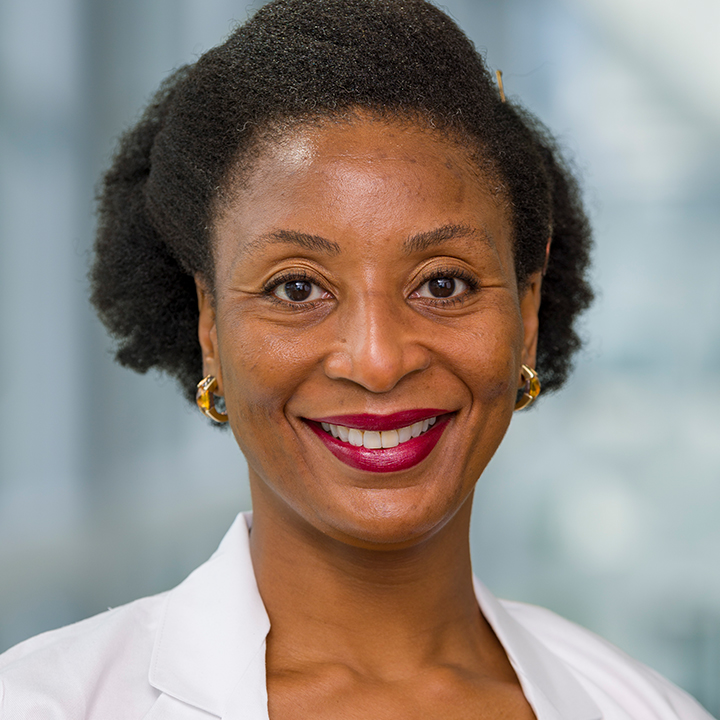Nneka Ifejika, M.D., M.P.H.
- Associate Professor, Physical Medicine and Rehabilitation | Neurology | Population and Data Sciences
- Texas Health Resources Clinical Scholar
- U.S. Congressional commendations for innovative work with underserved populations affected by cerebrovascular diseases
- Fellow
- American Heart Association Stroke Council

“When advocating for your patients, your family or your community, you have to be insistent, consistent, and persistent.”
Early Influences
Dr. Ifejika recognizes her mother, a family medicine physician, as a guiding influence in her own STEMM career. “During early childhood, my mother taught a monthly Advanced Cardiac Life Support class in the Adams Morgan neighborhood of Washington, D.C.,” she said. “I spent these weekends learning firsthand about different medical specialties from people who looked like me, who attended the same city schools I attended, and who understood the importance of early mentorship.”
By seeking out community and health care-oriented opportunities throughout school, Dr. Ifejika continued to be exposed to the medical field. “I had the good fortune of attending grade schools that incorporated community service into the curriculum,” she said. “In high school, I volunteered at local nursing homes, assisted-living facilities, and acute care hospitals, providing immersive health care experiences. I continued this pattern of giving throughout college and medical school.”
Still today, “I volunteer with local and national organizations dedicated to mitigation of disability and the prevention of cerebrovascular disease.”
Taking Risks
Dr. Ifejika emphasized the importance of finding one’s unique path in STEMM, even if others do not agree.
“The biggest risk I took entailed cross-training in a subspecialty (cerebrovascular disease/neurology) not linked to my primary specialty (PM&R).”
“When I accepted the offer to join a neurology department, I was called a traitor by a co-resident during our board review workshop. He felt quite comfortable and stated matter-of-factly that the sentiment was shared by several of our future colleagues.”
Dr. Ifejika did not let this negative feedback deter her. “I didn't engage, and 15 years later I have no regrets. Trailblazers are often laughed at or mocked for being different. I had a gut feeling that crossing over specialties was a step I had to take to provide comprehensive care for stroke survivors. I took the step forward, and through my actions, that dude had to step aside.”
Advice to the Next Generation
View Academic Profile“My advice for young girls and women who want to pursue a STEMM career is pace yourself. Set a schedule,” Dr. Ifejika said. Additionally, “join a study group with people who have similar goals. You will have friends who started the journey with you who will not finish, and it is OK to be sad about it. But push forward, don't give up. It's completely worth the journey once you get here.”